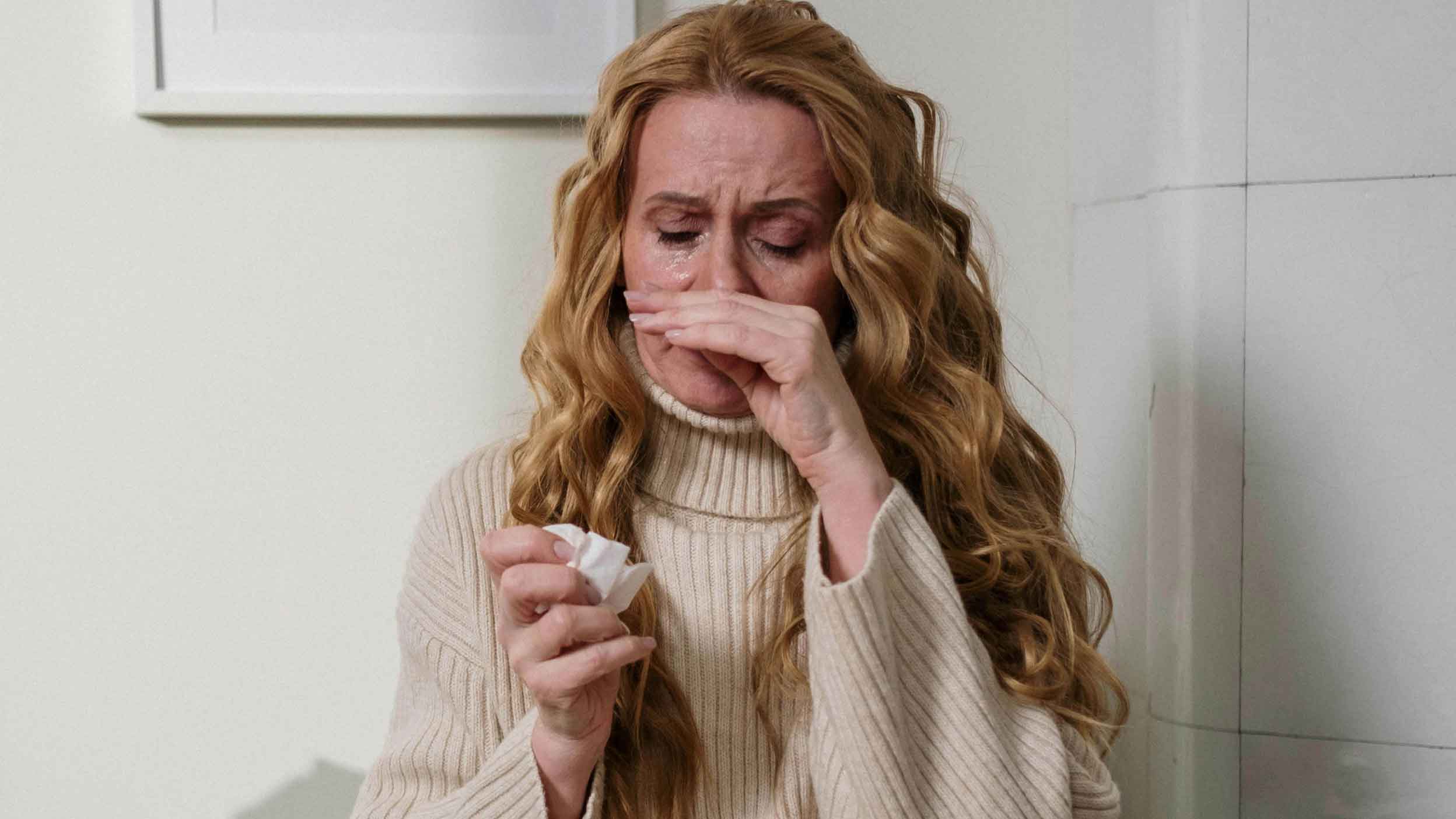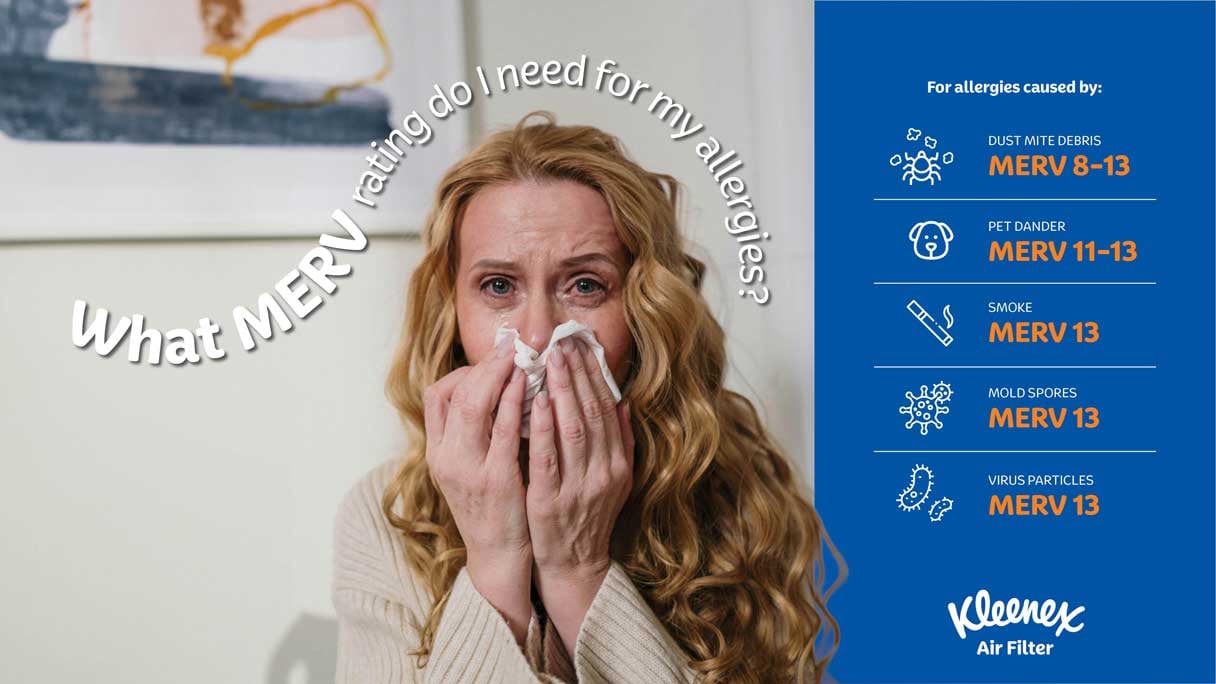
Our air is filled with a range of small and invisible particles called aerosols. This can include various outdoor pollutants such as smog, pollen, soot, smoke, and even ash from wildfires. While we cannot change the quality of our outdoor air, there are several ways to improve our indoor air quality at home such as by using an HVAC air filter.
HVAC air filters are a common way to capture and trap harmful particles in the indoor air. This includes allergens, household dust, dust mite debris, pet dander, smog, mold spores, smoke, airborne bacteria, pollen, and more. Used consistently and overtime, an air filter can help protect you and your family. However, not all air filters are the same. When looking for an air filter, you might be asking yourself what MERV rating do I need? This will help you to determine which air filter is the best for your family, based on your specific needs and concerns.
What is a MERV Rating?
As the official government industry standard, MERV ratings measure how many particles can escape through a filter as well as how efficiently air flow can move through an air filtering system. Below, we will share more to help you determine what MERV rating should I use?
What is MERV Rating on Air Filters?
Quite simply, a higher MERV rating signifies that fewer air particles will come through. The MERV chart ranges from low (less than 6) to medium (7-12) to high (13-16). Typically, air filters ranging from 8-13 are ideal for the home.
Understanding this system enables consumers to choose the best air filter based on their specific needs.
Understanding MERV Rating
For example, if someone in your home has allergies or asthma, you can consider an air filter with a higher MERV rating; whereas someone who has pets - and is not allergic - might not need a MERV rating air filter as high. Air filters can be a great way to care for your air and to help protect your home and family.
Household Dust & Dust Mite Debris
Every home is privy to be ridden with household dust and dust mite debris. It is found in places we can see and within hard-to-reach nooks that can grow if not removed. Incredibly, dust is formed from skin cells, dirt, fabric, rugs, smoking, clothing, pet dander, books, and much more. Overtime, these particles float in the area and settle onto surfaces throughout your home.Dust mites, however, are microscopic pests that live - and thrive - in humidity. If left in the home, it can affect your breathing and lungs, or worsen a dust allergy. Dust mite debris can also annoy ailments such as sneezing, coughing, watery eyes, running nose, and/or wheezing.
Air filters, such as the Kleenex Elite Allergen Air Filter, can trap large and small dust mite debris, providing consumers with better air. Make sure that your air filters are changed regularly - as dust can live in them. Additionally, it is important to groom your pets, keep air circulating in your home, and to regularly clean and declutter.
Allergens
For those who have allergies, it is crucial to use an air filter to capture airborne particles to aid in managing allergens. This can potentially aggravate breathing, sneezing, itchy/watery eyes, coughing, and congestion. Even those who don’t have a serious allergy can be prone to allergic reactions from unhealthy air.An air filter, such as the Kleenex Advanced Allergen Air Filter, works to care for allergen air. With a MERV Rating of 12, this filter captures pollen, dust, and other allergens.
Pet Dander
We all love our four-legged friends, but their pet dander can impact our health. Common pet allergens are found in their dead skin cells, dander, urine, and salvia.Pet dander itself is microscopic pieces of airborne skin that animals shed. Over time, these pieces dry and eventually land on surfaces. Dust mites, pollen, and mold also thrive on pet dander, which can cause more issues to your indoor air quality and/or exacerbate allergies.
Many pet owners may experience a range of minor ailments from pet dander such as sneezing, runny nose, nasal congestion, and watery eyes. Whereas other people might suffer from severe pet allergies that cause allergic reactions, such as difficulty breathing, hives, chest tightness, and more.
An air filter, such as the Kleenex Advanced Allergen Air Filter, works to capture pet dander. With a MERV Rating of 11, this filter helps protect your home and family with clean air.
Mold Spores
Mold can be incredibly challenging to deal with. According to the Centers for Disease Control, mold is formed from excessive moisture and reproduces rapidly by releasing tiny and invisible spores. These spores acclimate in the air and eventually land on wet surfaces where they continue to reproduce. In the home, this is commonly found in bathroom tiles, in the shower/tub, kitchen surfaces, damp basements, window moldings, air conditioner surfaces, and more.Difficulty breathing, itchy, red eyes, coughing, irritation, rashes, headaches, and/or worsening existing allergens.
An air filter, such as the Kleenex Advanced Allergen Air Filter, works to capture mold spores and airborne bacteria, pollen, dust, and other allergens.
Cooking & Smoke
Cooking is an integral part of the home. While making your family’s favorite dishes, lingering smells -such as fish - can permeate in the air and even linger into other rooms.If you smoke and/or live with a smoker, an air filter can absorb and trap smoke in the air as well as eliminate smoke odors. For both cooking odors and smoke, it is crucial to keep your windows open and use vents and fans to circulate the air.
An air filter, such as the Kleenex Elite Allergen Air Filter, works to capture smoke and smog to ensure that you and your family have clean indoor air.
Bacteria and Viruses
When used consistently, air filters can help reduce harmful contaminants in the air. According to the Environmental Protection Agency, this can include viruses in the home. This is crucial for families, especially those with small children, as many colds and viruses are constantly going around.An air filter, such as the Kleenex Elite Allergen Air Filter, works to remove microparticles as it deep cleans your air. With a MERV rating of 13, this filter works to help trap cough debris and airborne bacteria.
MERV Rating Chart

Breathe Cleaner with Kleenex Air Filters
While air filters are a crucial component to your air quality, it is also important to regularly change your filters and to use them consistently. Over time, you and your family can benefit from incorporating an air filtration system in the home.
Find Kleenex Air Filters at a retailer near you .





.webp?rev=-1)
.webp?rev=-1)
.webp?rev=-1)

